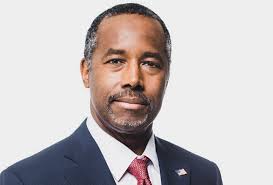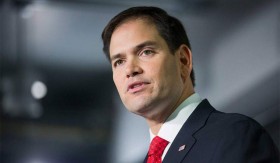The GOP Nomination
Michael is a senior at the Jewish Community High School in San Francisco, where he is the (self proclaimed) standard bearer of conservatives on campus. He runs his school’s «Young Republican’s Club,» as well as the statewide high school conservative organization «Golden State Teenage Conservatives.» Michael enjoys political discussion, classic Russian food, BBQ, skeet shooting, […]
Michael is a senior at the Jewish Community High School in San Francisco, where he is the (self proclaimed) standard bearer of conservatives on campus. He runs his school’s «Young Republican’s Club,» as well as the statewide high school conservative organization «Golden State Teenage Conservatives.» Michael enjoys political discussion, classic Russian food, BBQ, skeet shooting, and competitive swimming. Questions or comments? Feel free to email him at mgofman@gstc.co
The past few weeks have left the race for the GOP nomination in even more turmoil than before. Let’s focus on some of the big national trends, as well as a few relevant but specific in state changes. Unfortunately, due to the volume of new information that needs to be discussed, the analysis of Scott Walker that was promised in the last article has to be postponed.
For the national field, we’re going to focus on a few key events: Ben Carson’s fall, Lindsey Graham’s impact on the race, and the search for an establishment candidate.
First off, let’s analyze Dr. Ben Carson’s performance. Since the beginning of September, the rest of the candidates’ numbers have wildly fluctuated. Carson’s rise however, was sudden and steady, at least in polling numbers. In fact, for a brief period of time, many pollsters had him polling higher than Trump nationally, as well as leading the Iowa caucuses. That being said, Carson was never viewed by professional analysts and experts as a viable candidate, and there are several reasons for this.

Dr. Carson has never held a political position before, nor does he have any expertise on foreign policy and national defense (besides talking points and political one-liners). Secondly, Carson finds himself treading the fine line between Christian conservatism and Tea Partyism. These are not ideologies that experts think can sway enough independents to win the general election, and at a certain point, voters see that as well. In fact, even while Carson was beating Trump in the polls, his betting odds at the nomination peaked at 17%, while his presidential winning odds peaked at 11%. As national security becomes a more important issue than social policy in the voters’ eyes, Carson’s numbers will continue to drop, as did Rick Santorum’s and Mike Huckabee’s before him.
On December 21st, Lindsey Graham Dropped out of the nomination race. For some of you, this may be the first time you’ve heard that name, and there is good reason for that. According to most polls, Graham never amassed more than 2% of votes, and was last polling at 0.3%. A hawk on foreign policy, Graham was seen as a moderate on social, economic, and domestic issues, something that hurt his nomination odds from the start. His campaign, overall, could be seen as a failure, and he, himself, as just another of many establishment candidates fighting for the nomination. However, Graham’s impact on the race is often overlooked; he helped shift republican foreign policy rhetoric from a push to isolationism, back to their traditional tough hawkishness.
The best example of Graham’s impact has been the decline of Rand Paul. Back in mid 2014, Paul was leading the polls, and was seen as the new, younger face of the Republican Party. Paul ran as a Republican, but he incorporated many Libertarian principles into his policy. He was billed as the social moderate, economic hardliner to bring the youth of this country into conservative politics by speaking the same language they spoke. One specific principle that he brought with him was a push for isolationism, a push for not getting involved overseas unless, in his eyes, it was absolutely necessary. Paul represents the polar opposite side of the Republican Party from Graham, that pushes for a strong world presence and a powerful military. Graham, together with Rubio, was able to use his position as a senator and national commentator to push the Republican candidates to adopt a more hawkish foreign policy. This shifted the debate toward a greater emphasis on security, and gave hawkish candidates the ability to call out and denounce those candidates that adopted what they considered a weak foreign policy.
Next, let’s take a quick look into the Republican Party’s continued search for a feasible and electable establishment candidate. First, a quick bit of background. What is «The Establishment?» The term is loosely defined, but in general it is used to describe candidates that have been career politicians, those content with just carrying on the status quo, and those with relatively moderate political stances. Its best to think of it as a spectrum, where on one end, you have the most moderate, such as George Pataki and Chris Christie, and on the other end you have the most conservative of the political establishment, such as Marco Rubio.
In the spirit of honesty, I believe that man to be Marco Rubio, but I will be as unbiased as possible in my writing. The Republican establishment candidates as of today are Jeb Bush, Marco Rubio*, John Kasich, Chris Christie, and George Pataki. The leading establishment candidate is Marco Rubio, in third place in the polls at 12.3%.

Not a high number, however the candidates together total 22.6%, enough to put them into a very comfortable second place in the polls. The question then is, why can’t the establishment consolidate against Trump and the Christian right? The answer is simple, greed. Each candidate wants to be the candidate.
Rubio, as the front runner has no reason to quit. Christie recently exploded in New Hampshire, jumping to fourth place with over 11% of the votes there, and he feels good about his odds of making an impact there, so he won’t quit. Jeb Bush won’t quit because he feels responsible for the millions of dollars invested in him, as well as some assumed rivalry with his brother; if George could win, why can’t he? That leaves Kasich and Pataki. Kasich is doing OK in New Hampshire and, as such, wants to wait for that to play out. Pataki, in my opinion, is the candidate most likely to drop out next.
What does all of that mean? It means we probably have until New Hampshire until the moderate and establishment right comes together on a candidate.
Betting information provided by Predictit.org, Polling information provided by RealClearPolitics.com
* There are some concerns about Rubio’s eligibility to run. When he was born, his parents were not yet US citizens. According to federal law, however, all one has to do in order to be born a natural citizen of the US, is to be born on US soil. This is called birthright Citizenship. Rubio was born in Miami on May 28th 1971. This makes him eligible to run according to federal law.
Michael GOFMAN





